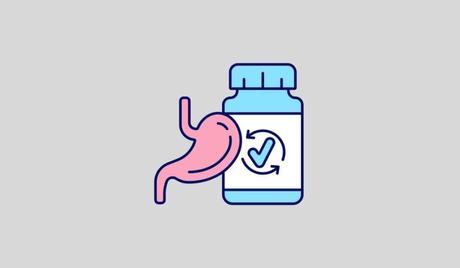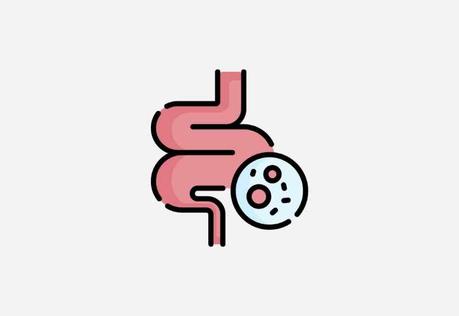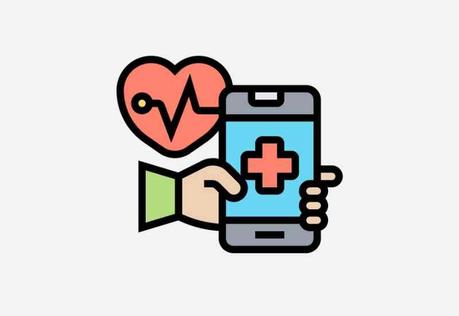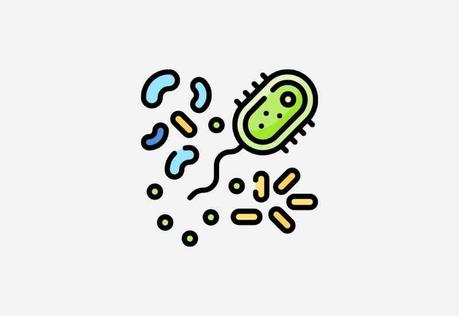Wondering if your probiotics are working? Or how long it’s going to take for them to start working? Here’s a detailed look at how long it takes for probiotics to work, signs they are working, and how to get more from your probiotics.

Probiotics are one of the best supplements you can take for improved gut and mental health, improving athletic performance, and even helping you lose weight.
But maybe you’ve started taking your probiotic of choice and aren’t seeing results.
In this article, we will look at some of the research on how long it takes for probiotics to be effective.
- Probiotics – An Overview
- How to Know Your Probiotics Are Working
- Tips for Getting the Most of Your Probiotic
Provide some clues to help you see if they are working.
And we will also give some tips for getting the most from your probiotics.
So, let’s jump right in!
Probiotics – An Overview
First off, let’s discuss what probiotics are and why they can be helpful to you.
Probiotics are described as “live microorganisms that are intended to have health benefits when consumed or applied to the body.”
They are what is referred to as “useful” bacteria.
There are various strains of probiotics, though most fall under the Lactobacillus or Bifidobacterium groups.
You can find these naturally in many fermented foods, such as yogurt, kimchi, sauerkraut, kombucha, and more.
Supplementing with probiotics has become incredibly popular in recent years, and is only expected to grow in popularity.
Why?
Because they could help with various health conditions – especially those related to gut health.
That’s not to say that obtaining probiotics from food alone isn’t beneficial. It all depends on your preferences.
How to Know Your Probiotics Are Working
Before we get into some timelines in regards efficacy of probiotics, it’s helpful to know the signs that the probiotics are working in your specific case.
Here are just some of the health benefits of probiotics that can be a bright indicator that the probiotics are working as intended:

1. Improved Gastrointestinal Health
Lots of studies have shown that probiotics can help treat gastrointestinal issues such as Irritable Bowel Syndrome (IBS).
Certain strains have been very effective in treating diarrhea and gastroenteritis, as well.
One study found that taking probiotics minimized diarrhea related to antibiotics by an impressive 42%.
Diarrhea is a common side effect from taking antibiotics, which can create an imbalance of good and bad gut bacteria.
Probiotics can help regain a proper balance, minimizing the frequency and severity of GI issues down the line.
Seeing as one of the biggest benefits of taking probiotics is boosting gut microbiome health, this makes a lot of sense.
2. Better Mental Health
It seems like there is a new study linking gut and mental health every day.
In fact, that link isn’t just present in humans, either!
Various studies in both human and animals have found that certain probiotic supplements can help with some mental disorders.
More specifically, it’s been found that taking Bifidobacterium and Lactobacillus strains for up to 2 months can help with anxiety, depression, autism, OCD, and more.
Another showed that taking them for 8 weeks reduced depression symptoms and lowered hormones like insulin, which could potentially help with weight loss and diabetes.
3. Heart Health
Did you know that probiotics can help lower LDL cholesterol and blood pressure?
Probiotics actually produce acids that counter cholesterol production.

There is ample evidence showing that they help improve the LDL (bad cholesterol)/HDL (good cholesterol) ratio, too.
While more research needs to be done on this, there are already various studies suggesting at least a mild reduction in both.
4. Improved Immune System
Who wouldn’t enjoy having a stronger immune system?
Spend less time being sick and more time doing what you want!
Probiotics may be able to help, by giving your immune system a boost.
Not only do they help keep “bad” gut bacteria at bay, some strains have been shown to boost production of natural antibodies.
These can help reduce your chances of getting a respiratory infection, urinary tract infection, and other unpleasant bacterial and viral illnesses.
5. You Are Losing Weight
We know probiotics are starting to sound too good to be true at this point!
But seeing as gut bacteria can affect body weight, it checks out.
So, how does this work?
There are various aspects to the equation.
One, because probiotics seem to affect appetite and energy usage through the production of short-chain fatty acids.
Probiotics could help release appetite-reducing hormones and boost levels of fat-regulating proteins.
Both of which can help with fat loss, as you’ll have less cravings and store less fat.
In another aspect, various studies tell us that people at a moderate weight have a different composition of gut microbes than those who are overweight or even obese.
It was discovered that people who are obese have less-diverse gut bacteria, which seems to make them gain weight more easily than those who have more diverse bacteria.
So yes, probiotics are good for weight loss.
One of my favorite all-time probiotics as it related specifically to losing weight is BioFit Probiotics.
It’s a multi-strain probiotic taken daily that reduces hunger cravings, reduces the amount of fat being absorbed in the body, and can help accelerate fat loss.
You can read my full experience and review of BioFit probiotics here.
How Long Before Probiotics Start Working?
First, we need to acknowledge that the strain and potency of probiotics used can have a huge influence on efficacy.
The rate at which they start to take effect also depends on the condition you’re trying to treat with them.
For example, if you’re using a probiotic to treat infectious diarrhea, you may see results in as little as 2 days.
If you’re trying to improve general gut health, it may take weeks or even a few months to see a notable difference.
One study showed that people suffering from IBS experienced massive improvements in their symptoms after taking Saccharomyces boulardii for 4 weeks.
Another study witnessed significant improvements in participants suffering from bloating in just 3 weeks.
As you can see, the time it takes to see an improvement depends greatly on the condition being treated.
Not only that, but it just depends on the person!
Our bodies are all different, and so is our gut microbe.
Tips for Getting the Most of Your Probiotic
Before anything else, it’s important to know that there are many factors that are involved in how effective your probiotics are.
Let’s take a look at some tried-and-true tips for maximizing your probiotic efficacy.
 Quality
Quality

This is probably the most important one. Make sure you’re using a reputable brand and follow the suggested directions on the label.
Not every probiotic will have the same set of directions, so it is advised to always read the labels and follow accordingly.
Be consistent.
If directions say to take them every day at bedtime, then do that.
Remember, some probiotics won’t yield results until after a few weeks or possibly months, so hold strong and take them accordingly.
Pay attention to any added ingredients, too.
Some cheaper brands often throw in fillers and binders which can cause adverse reactions in some people. Multispecies and multi-strain supplements seem to work quicker, as well1.
 Wrong Strain
Wrong Strain

That brings us to our next point.
Different strains of bacteria will have different effects on your body.
If you aren’t seeing an improvement in your GI health, it could be that the strain you’re taking isn’t ideal for digestive health.
You’ll typically see probiotics listed by their genus, species, or strain nickname.
Lactobacillus is very beneficial to our digestive and urinary systems, and can help protect our intestines from harmful bacteria.

Bifidobacteria helps digest dietary fiber, prevent infection, and trigger the production of certain vitamins.
They’ve been proven to work very well with constipation, diarrhea, and IBS.
Most probiotics will fall under one of these classifications.
 Dosage
Dosage

As with everything else, the dosage will have different effects on different people.
No two bodies are exactly the same.
It’s a smart idea to try a targeted probiotic formulation, and if you need help, your physician can offer some insight on this.
For example, some probiotics may work well at 1-2 billion colony-forming units (CFU).
However, other strains or brands may work better at an even higher dosage.
The delivery mechanism may have an effect on how well they work for you, as well!
After all, if the probiotic isn’t even able to survive all the way through your stomach acid, they’re not going to be of much help.
Also consider what your diet looks like, and how your probiotic supplementation reacts with it.
After all, there are always potential side effects and they can potentially interact with any medications you’re taking.
 Proper Storage
Proper Storage

Something that isn’t focused on enough is how we store our supplements.
Improper storage can not only potentially cause reactions, they could render the probiotics essentially useless.
If you have any questions about how to properly store yours, refer to the label.
Some may be fine just kept at room temperature, while other brands or strains need to be refrigerated.
While you’re at it, check the expiration date as well.
You may see it next to “use by date”, which refers to how long your probiotics will have live cultures.
If you come across a container that lists its expiration as “time of manufacture”, just avoid taking them at all.
It’s very likely that the probiotics don’t even have live cultures.
 Right for You
Right for You

Probiotics are not for everyone, and while they are generally well-tolerated and considered safe for the majority population, there are always exceptions.
No matter what, make sure you take them as directed, that they’re stored properly, and that you listen to your body.
After all, these are live microorganisms that play a big role in our overall health.
The Bottom Line
Probiotics are abundant in foods most of us eat regularly anyway, such as certain dairy products, sauerkraut, pickles, kombucha, and many other fermented foods.
However, you can also find them in various supplements that can offer up to a whopping 100 billion CFUs per serving.
Whichever way you choose to obtain your probiotics is up to you.
The important thing is you will be able to boost your immune system, improve gut health, and even lose some weight!
